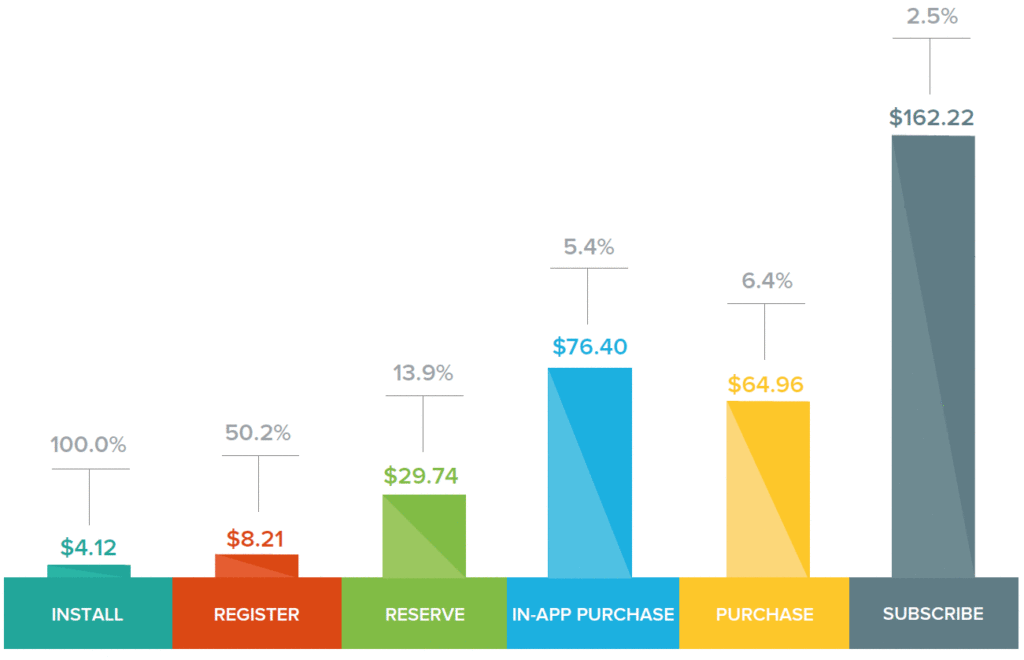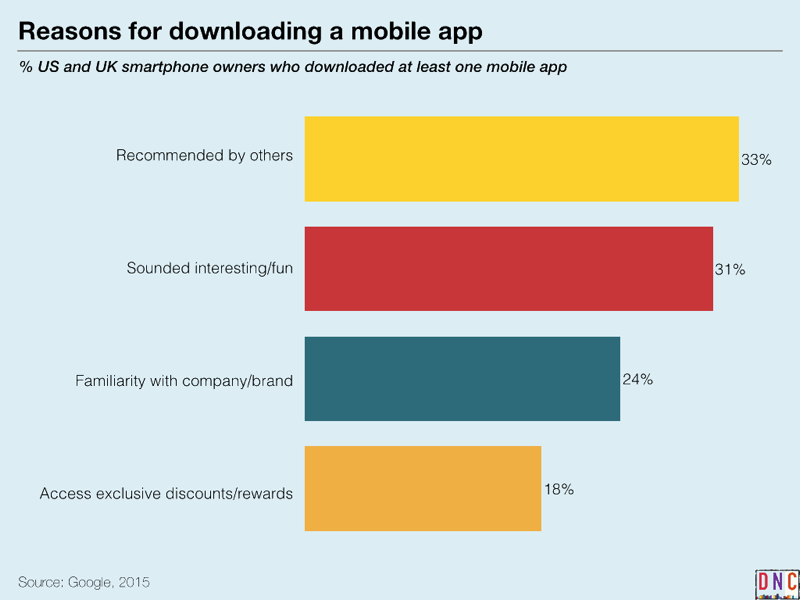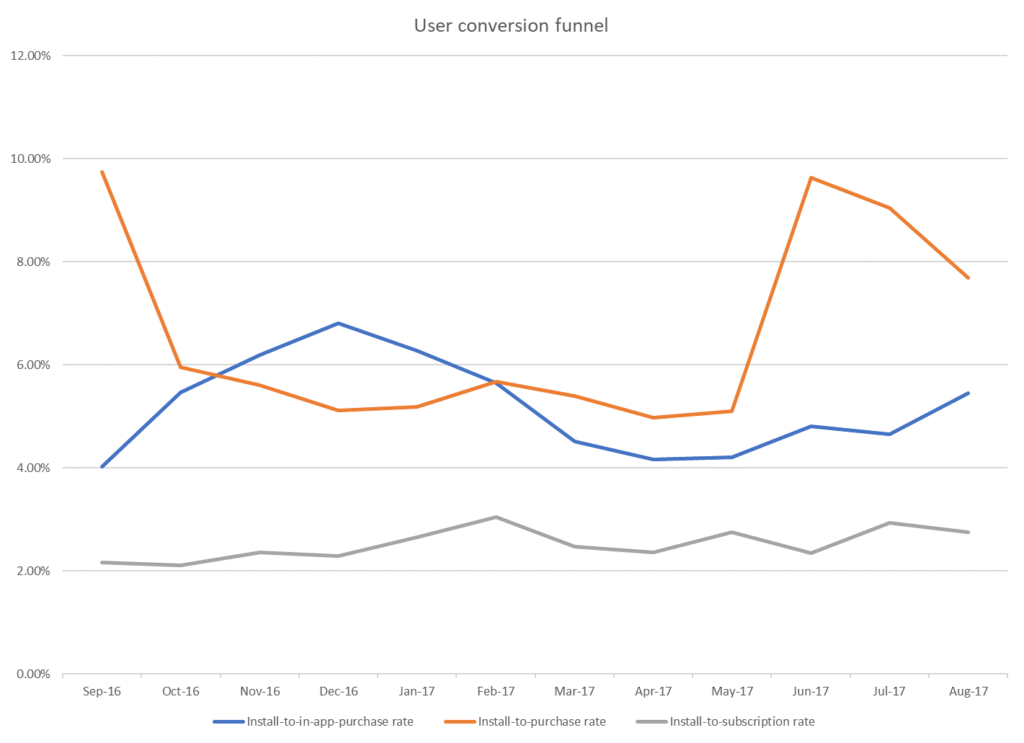Acquisition of mobile app users is expensive. Liftoff determined that the cost to acquire a user who makes a purchase in an app costs $64.96. Of course, you are spending a lot to acquire users that don’t do anything, which brings the average up. It’s probably time to rethink both targeting, engagement and distribution strategies if you are an app marketer.
There are many steps in the funnel to getting users. The first step, of course, is the install. The costs per install on average is over $4:

Source: Liftoff
Is paying for users the only option?
So, is buying your way the only way to go? Clearly not, or most app companies would go bankrupt. There, of course, is always the pipe dream of getting featured. Being featured is often a huge bump:

Apptopia found that nongaming apps that earned featured status on the App Store saw a download spike by an average of 1,747%. For games, this is slightly lower, but games publisher still saw their downloads boosted by an average of 792%.
But getting features is kind of like winning the lottery. Very few do, so what are your other options? Well, ensuring a good healthy word of mouth campaign can be great. Research has shown that word of mouth is hugely important for app downloads:

But in mobile apps, this traffic is not tracked, so what can you do? Luckily, CodeNgo’s new service, www.organicinstalltracking.com may be the perfect way for app marketers to ensure this can be tracked. All that is needed is for app review sites and others that drive traffic to simply drop a small tracking code on their site, and the data becomes available to you as a publisher.
Acquisition is one thing, but what about retention?
Spending on acquisition matters very little if your users do not engage with the app. Tracking and measuring retention is therefore hugely important. With only 4-5% of users actually ending up spending money, how do you ensure you get the user to this stage?

Source: Apptopia
At a minimum, you need to track every engagement measure you have in your app. Using services like Pyze is a start. You may have a great product, but small design changes and how you communicate with users can have a massive impact. Data is at the heart of this.
Share this article on